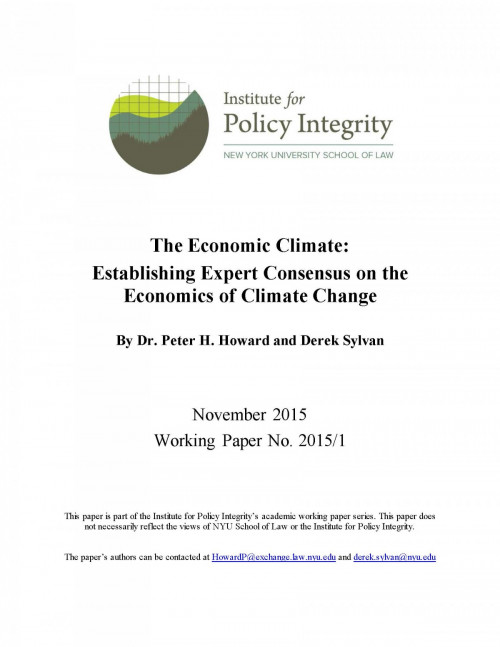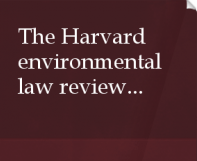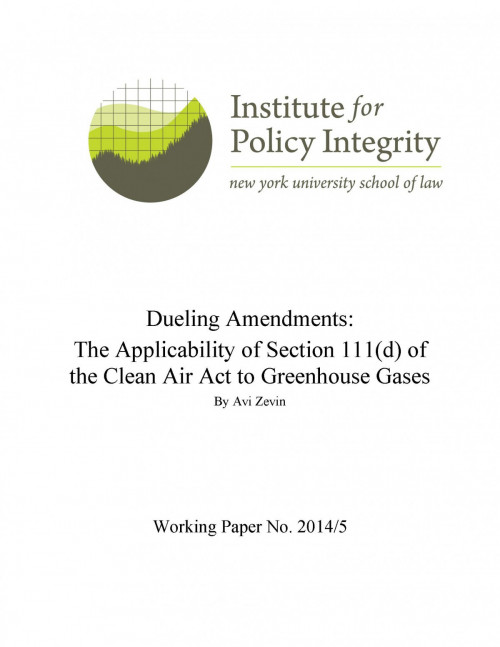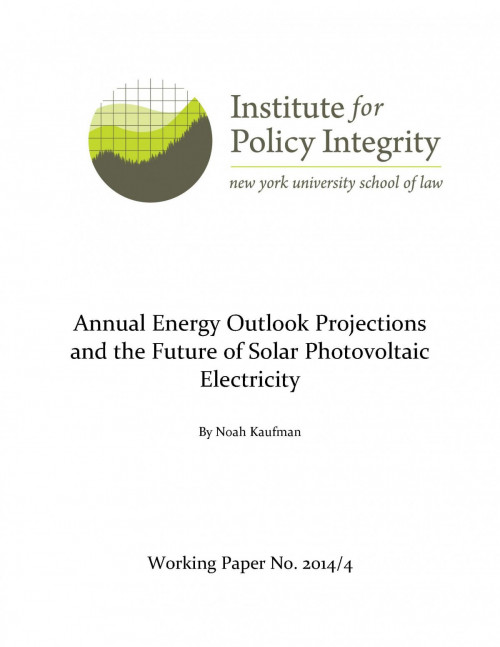-

The Economic Climate
Establishing Expert Consensus on the Economics of Climate Change
This working paper offers detailed analysis of our survey of economic experts on climate change issues. We surveyed all those who published an article on climate change in a highly ranked economics journal over the past 20 years. The survey focused on estimated climate impacts and appropriate policy responses, and the results reveal several areas where expert consensus exists on these issues.
-

Interest Groups and Environmental Policy
Inconsistent Positions and Missed Opportunities
This Essay examines and explains the positions of the principal interest groups over the past four decades with respect to the two central questions of environmental policy: the appropriate policy goal and the instrument that should be used to carry out the policy. While environmental groups and industry have largely switched positions on the two central questions of environmental policy, the points at which their positions overlapped were fleeting, and opportunities to make substantial progress in rationalizing the system of environmental regulation have largely been unrealized.
-

Toward a More Rational Environmental Policy
This essay argues that U.S. environmental policy should operate in accordance with five major components of rationality: cost-benefit analysis; cost minimization; flexible market-based instruments; constraints on grandfathering; and the sensible allocation of decision-making authority between the federal government and the states. This past Term, the Supreme Court decided two significant cases, which together should be seen as producing a move toward rationality in environmental policy.
-

Dueling Amendments
The Applicability of Section 111(d) of the Clean Air Act to Greenhouse Gases
The United States Supreme Court determined that greenhouse gases (GHGs) were an “air pollutant” under the Clean Air Act in its ruling on Massachusetts v. EPA. The Environmental Protection Agency (EPA) has since taken steps to regulate GHGs under a rarely utilized provision of the Clean Air Act, section 111(d). Despite the text printed in the U.S. Code, the true text of section 111(d) is in doubt. This is because of a small but potentially significant legislating error that occurred during the creation of the 1990 Clean Air Act Amendments, when the Senate and House of Representatives made different revisions to section 111(d), both of which were passed by both houses of Congress and signed by the President. This paper analyzes whether the conflicting amendments to section 111(d) will prove to be a problem or an opportunity for EPA in its efforts to regulate GHGs.
This is a student working paper, and it does not necessarily represent the views of the Institute for Policy Integrity.
-

Annual Energy Outlook Projections and the Future of Solar PV Electricity
The topic of this paper is the assumed growth of solar photovoltaic (PV) in current energy models, with a focus on information from Annual Energy Outlook (AEO) of the U.S. Energy Information Administration (EIA). EIA resolves the difficulty of modeling solar energy into the future by assuming its current growth will not continue. However, EIA’s assumptions on the future costs of solar PV are highly pessimistic, and its methodology would appear to bias its “Reference Case” projections toward lower growth of solar energy. Sure enough, past AEOs have systematically underestimated the future growth of solar PV. Energy modelers therefore may need to adjust the AEO forecast in order to reflect a most likely baseline trajectory for solar PV.
Viewing all publications in Academic Articles/Working Papers
